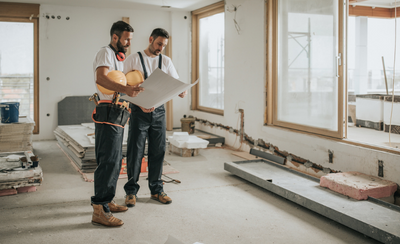Planning your Self-Build budget
Self-building continues to be a popular option. Government figures show that the number of people deciding to build their own homes continues to increase yearly. The most recent figures (between 31 October 2020 and 30 October 2021) reported by local authorities show:

 12,263 new individuals joined the Self Build register, an increase of 31% from the same period a year earlier.
12,263 new individuals joined the Self Build register, an increase of 31% from the same period a year earlier.
 157 new groups joined the register, an increase of 12% from the previous year.
157 new groups joined the register, an increase of 12% from the previous year.
 759 groups were on the register, an increase of 14% from 2019-20.
759 groups were on the register, an increase of 14% from 2019-20.
 8,309 planning permissions were granted for serviced plots suitable for self and custom build, an increase of seven per cent from the same period a year earlier.
8,309 planning permissions were granted for serviced plots suitable for self and custom build, an increase of seven per cent from the same period a year earlier.
Source: Government Self-Build Register
Plan ahead
Careful budgeting is a priority, particularly in the current economic climate, with inflation pushing up the prices of every aspect of the process. There are many considerations, such as buying the land, planning permission, the cost of construction, financing the project, and a contingency budget for the inevitable unforeseen issues. In addition to the increased cost of materials and professional services, delayed deliveries of supplies can have further cost implications. Time is money, and if building materials delay the schedule of work, this could result in increased labour costs.
Land Purchase
Purchasing land with planning permission can be expensive, and it only sometimes guarantees approval for new or different designs. Most experts recommend widening your search area when looking for a plot because this will help you fully understand the actual value of sites and what's overpriced. Plotfinder and Buildstore Plotsearch can be helpful plot search tools.
The cost of professionals and trades
Researching the cost of professionals and trades needed to do the job can be time-consuming. Providing detailed information about the work upfront will ensure an accurate price and work done to standard. A project manager can help by making a schedule that enables contractors to price labour and materials accurately. Project managers can cost between 10%-15% of the budget, but as this shows, they can be cost-effective in the long run. They will also ensure your project complies with construction, design, and management (CDM) and health and safety executive regulations.
Managing the cost of materials
The Construction Leadership Council (CLC) provides regular updates regarding the availability and cost of building materials. Their latest update states that inflationary pressures rather than availability are the main challenges for energy-intensive products such as glass, concrete, cement, PIR, plasterboard, and bricks. A warm autumn has helped reduce the demand for gas, but as we enter winter, the budgetary impact of energy costs will rise again. They state that it is also still being determined what financial relief from the government will be available to energy intensive manufacturers in the spring when the current scheme is due to finish.
Developing a good relationship with your builder can help you to benefit from trade discounts. Some kitchen retailers and timber merchants also offer trade discounts for self-builders. Using reclaimed materials through reclamation yards such as Salvoweb is another cost-effective way to make your budget go further. Finally, using modular homes built offsite is another increasingly popular option because it has a fixed price. Modular properties aren't cheaper, but construction is much faster, and they generally experience fewer unforeseen problems and weather delays!
A self-build project is likely to be one of the largest single purchases, so managing the budget should ensure your budget and property are delivered to plan.